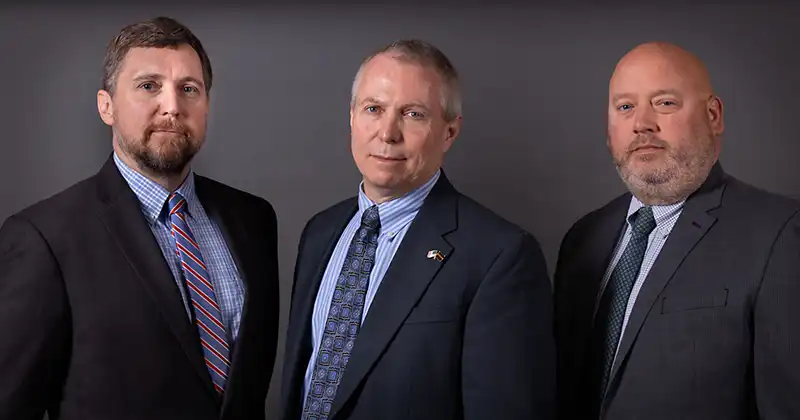What could cause Ford, GM, Chrysler, and other manufacturers to unite with trial lawyers like ourselves? It’s something the insurance industry has fought all the way to the Ohio Supreme Court to avoid telling you. It’s also one of the many gripes our clients have in the immediate aftermath of a collision: Cheap, unapproved, aftermarket crash parts.
Manufacturers spend years, and millions of dollars, designing and testing the safety and crashworthiness of the vehicles they make. Crucial to those efforts are the parts that make up every car or truck on the road. Parts that they have tested and approved are considered “original equipment manufacturer,” or OEM for short. Vehicles are designed so that all parts are working together to achieve the highest possible safety, efficiency, and performance.
When your vehicle is in a crash, the manufacturers strongly recommend that any replacement parts should be “OEM,” to ensure your vehicle emerges from the repair process in as best condition as possible.
On the other side of this equation are “non-OEM” parts. These parts are not subject to the same standards and testing as OEM parts, and their use, in the expert opinion of the manufacturers, can threaten the safety and integrity of the vehicles in which they are used. Automakers consider this so important that most vehicle lease agreements prohibit the use of non-OEM parts in the event of a crash.
Lurking behind these inferior parts is the multi-billion dollar insurance industry. As these companies process thousands of claims a day, even a few dollars of savings per claim can represent a huge boost to their profitability. This fight, like so many others, boils down to the safety and pocketbooks of our families versus the profits of a large industry.
These non-OEM parts can negatively impact a variety of vehicle systems. This has been proven to be true even in 5 mph crash tests. In one such test, performed by the insurance industry’s own interest group, a Toyota-made bumper on a Camry buckled, as it was designed, while a non-OEM bumper failed to buckle, and as a result crushed the ends of the bumper support structures. (See Insurance Institute for Highway Safety, Status Report, Vol. 45, No. 11 (Nov. 3, 2010)).
As the insurance industry’s own expert stated, “Aftermarket bumpers need to perform exactly the same as original bumpers in a crash. Even small changes in design can skew airbag sensors and alter vehicle damage patterns.” (Quoting from the same report).
Sometimes this means a failure of airbags to deploy, increasing injuries. (See Honda Collision Information, Can an Auto Body Part Affect Safety?) The non-OEM parts tested by Honda, and the sub-par crash test results that went along with them, would have actually dropped NHTSA’s crash test ratings from five stars to four. (Quoting from same report).
Just as often though it causes airbags to deploy in minor low-speed collisions where they were not intended to trigger. This might lead to unintended injury, but it definitely leads to massively inflated repair costs. In one Ford test, non-OEM parts caused the repair bill on a Mustang to balloon from $1,250 to $3,000, due to an improper airbag deployment. (See Ford Crash Tests Non-OEM Structural Parts, On Target: For Ford and Lincoln Wholesalers and the Collision Repair Industry (Summer 2011)).
In older vehicles that the owner has happily paid off, a low-speed collision should allow the vehicle to live to fight another day. An unnecessary airbag deployment sends these vehicles right over the “totaled” line, forcing owners to take on the financial burden of a replacement vehicle.
Twenty-five years ago this fall, the Ohio legislature enacted a statute to ensure that vehicle owners are notified when non-OEM parts will be used. The insurance industry is arguing that this statute simply doesn’t apply to them. They are making this argument, seemingly with a straight face, before the highest court in Ohio, even though the statute specifically includes them. (The statute is found at Ohio R.C. 1345.81).
Most of us are busy enough in our lives that we don’t have time to be car part experts. In the days following a collision, peoples’ lives become even busier, as they are washed into the insurance claims process, have to make arrangements regarding their car, may be missing work, may be incurring bills for medical treatment, and are all too often in one degree or another of pain. Insurance companies count on this chaos. They are betting that their nickeling and diming on your car will get lost in this confusion.
However, consumers who are notified about non-OEM parts are then provided with an opportunity to learn about the various crash tests that have been conducted demonstrating that non-OEM parts are less safe than OEM parts. They may learn that a vehicle with non-OEM parts is often more expensive to fix in a later crash than if the original repair had used OEM parts. Consumers who are leasing are then given an opportunity to avoid unknowingly defaulting on their standard lease agreement by using non-OEM parts.
The law sounds fair, doesn’t it? At its heart it is designed to make sure you are informed about what is going into your vehicle – the vehicle that you put your loved ones in. The insurance industry feels so strongly about this that they are fighting to the bitter end not to tell us, all so they can scrape a few bucks out of our vehicles.
(Todd Willis has been directly involved in this fight, recently submitting a brief to the Ohio Supreme Court on behalf of the Ohio Association for Justice urging the Court to make the insurance companies follow the statute. The case is Dillon v. Farmers Insurance of Columbus, Case No. 2014-0451. At the time of this writing the Court has not yet rendered its decision).

